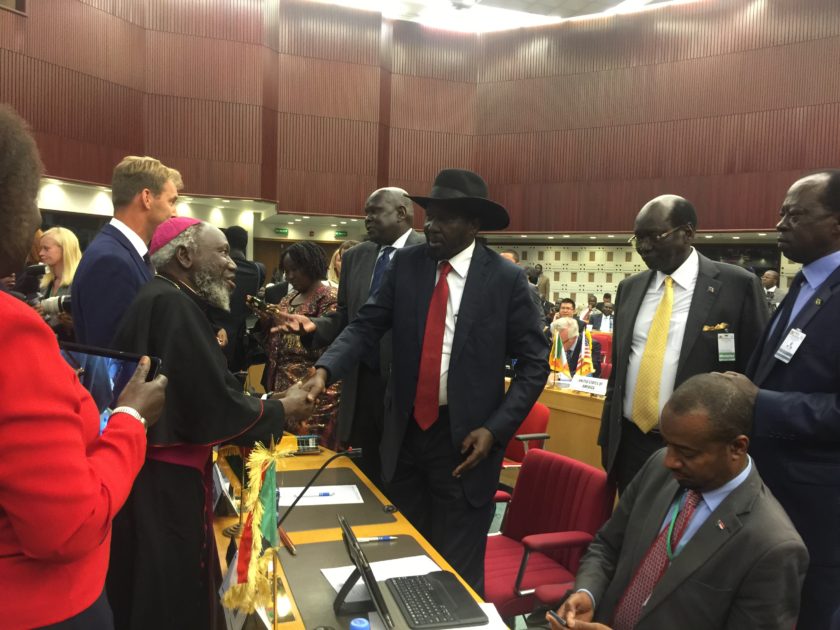South Sudan’s warring parties are back at the table to talk peace. The High Level Level Revitalisation Forum (HRLF) led by IGAD in Ethiopia, intended to revive the August 2015 Peace agreement, achieved the signing of the Cessation of Hostilities on 21 December 2017. These talks are aimed at resolving the outstanding issues of the renewed fighting that began in July 2016 between government forces and the armed opposition loyal to the former First Vice President Riek Machar. This happened soon after the start of the implementation of the August 2015 Peace Agreement and the formation of the Transitional Government of National Unity (ToGNU). Since then many rebellions were formed to overthrow the government.
The Foreign Minister commented at the (HLRF) in Addis Abba that, “We have to revise some of the provisions that we were not able to implement and try to implement them this time and look at the difficulties that made us not implement them.” These talks should hopefully shed light on any stumbling blocks and create a way forward.
The international community is putting more pressure on South Sudan’s leaders to find peace and put an end to the on going crisis. The Troika of the US, the UK and Norway, joined by the EU, has recognised the urgent need for a viable peace accord. A lot of funding by the International community has been put into this peace process in hope that a resolution is achieved this time round.
As a consequence of this crisis, the current humanitarian situation is dire and the economy is at the brink of collapse so there is a desperate need to find peace. Hopefully these talks can rebuild the confidence of future investors interested in South Sudan. Future investment opportunities are vast and plenty. Once peace is signed it will be the right time for businesses to gain entrance into a new market.
The country’s potential is great; South Sudan has a large amount of untapped resources, besides the oil reserves. Almost all the sectors need to be developed with the collaboration of both local and foreign investors. Such development will not only restore the economy but will also create more job opportunities for the citizens.
A report by the African development Bank state, “The demographic characteristics of South Sudan are typical of a poor developing economy: a large labour force (about 50% of the population is aged between 15-64). Close to 42 per cent of the working population is engaged in agriculture, 56 per cent in the service sector, and very few employees find work in the industry sector (24%).” Effective development of the private sector offers the prospects of sustained, strong economic growth.
I hope that this time round South Sudanese leaders will make wise decisions that benefit the people and the country’s economy. So much is at stake but there remains a belief that things can be salvaged with a genuine intent to serve the people. Peace will allow the country to develop and welcome in new businesses that can help recover the economy so the government can begin to plan for basic services. After the hard won independence in 2011 the people of South Sudan deserve nothing less than respect and honour of their dignity. Therefore this opportunity to find peace should not be undermined but highly respected. I strongly believe there is still hope for a brighter future; peace can only make South Sudan stronger.


